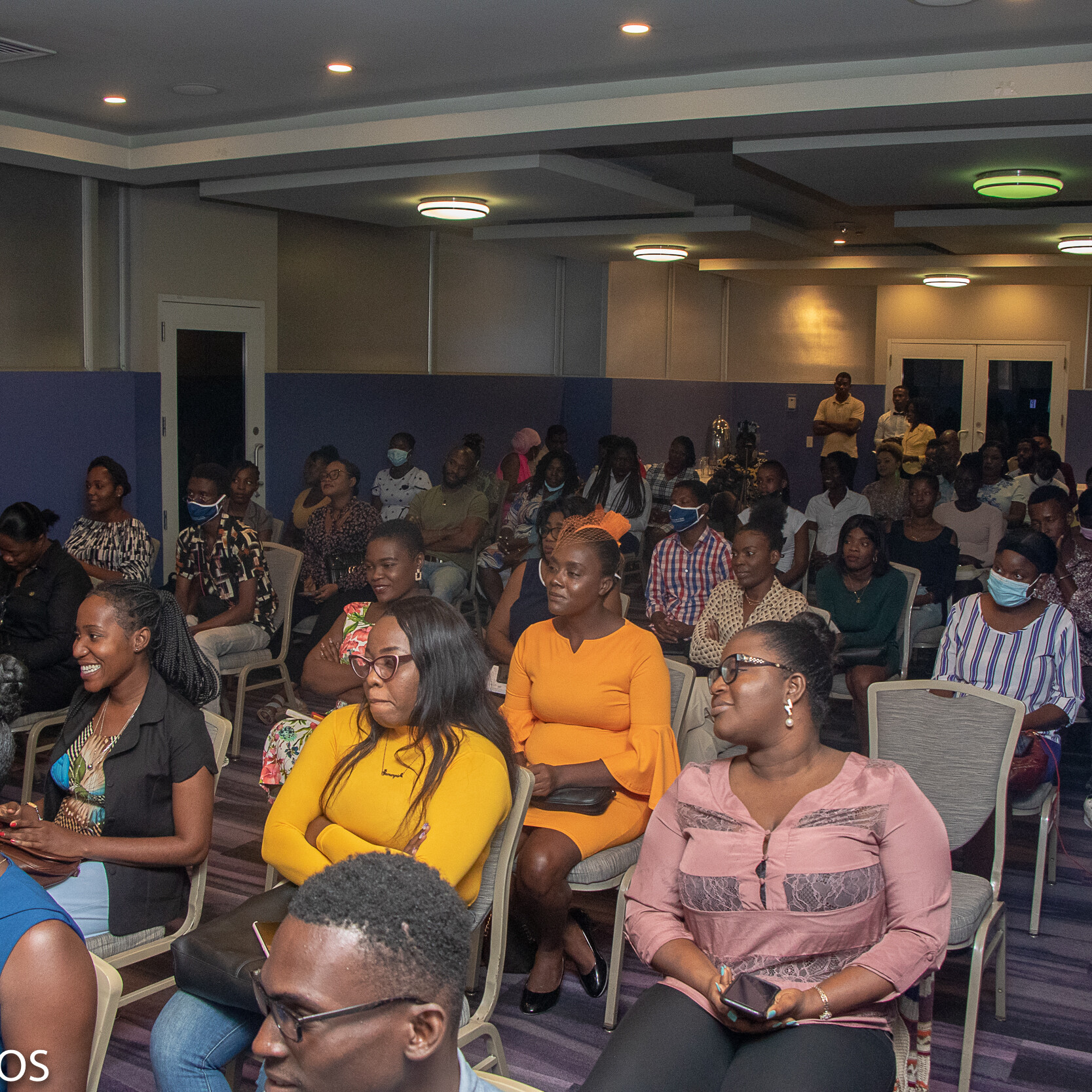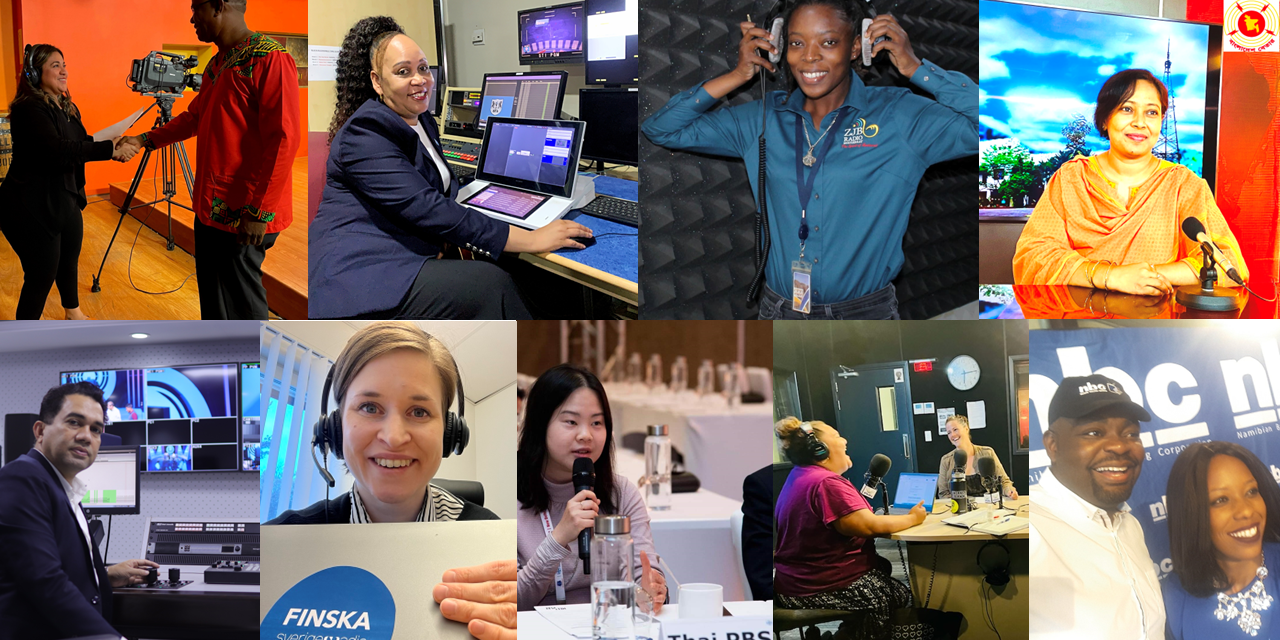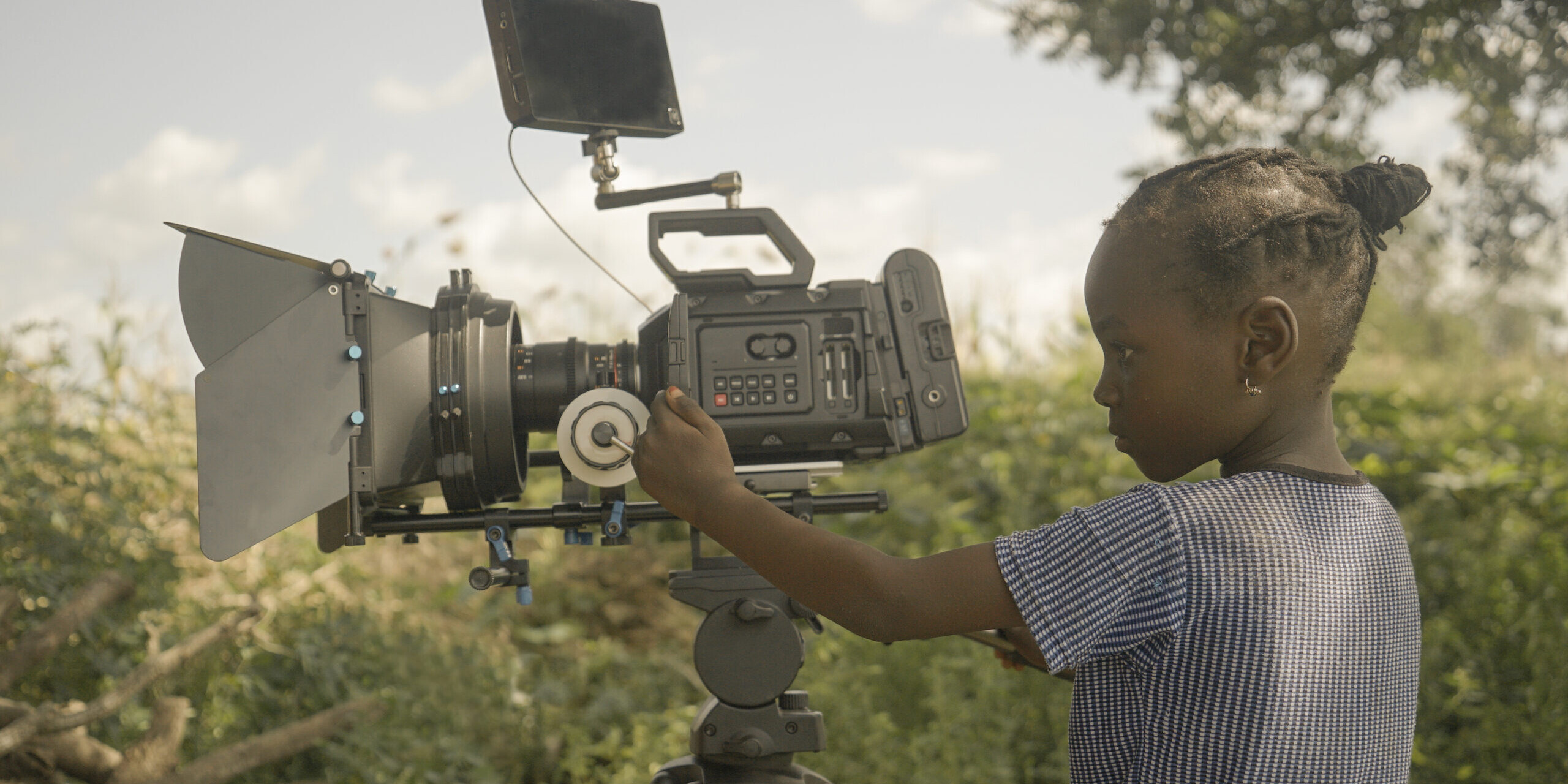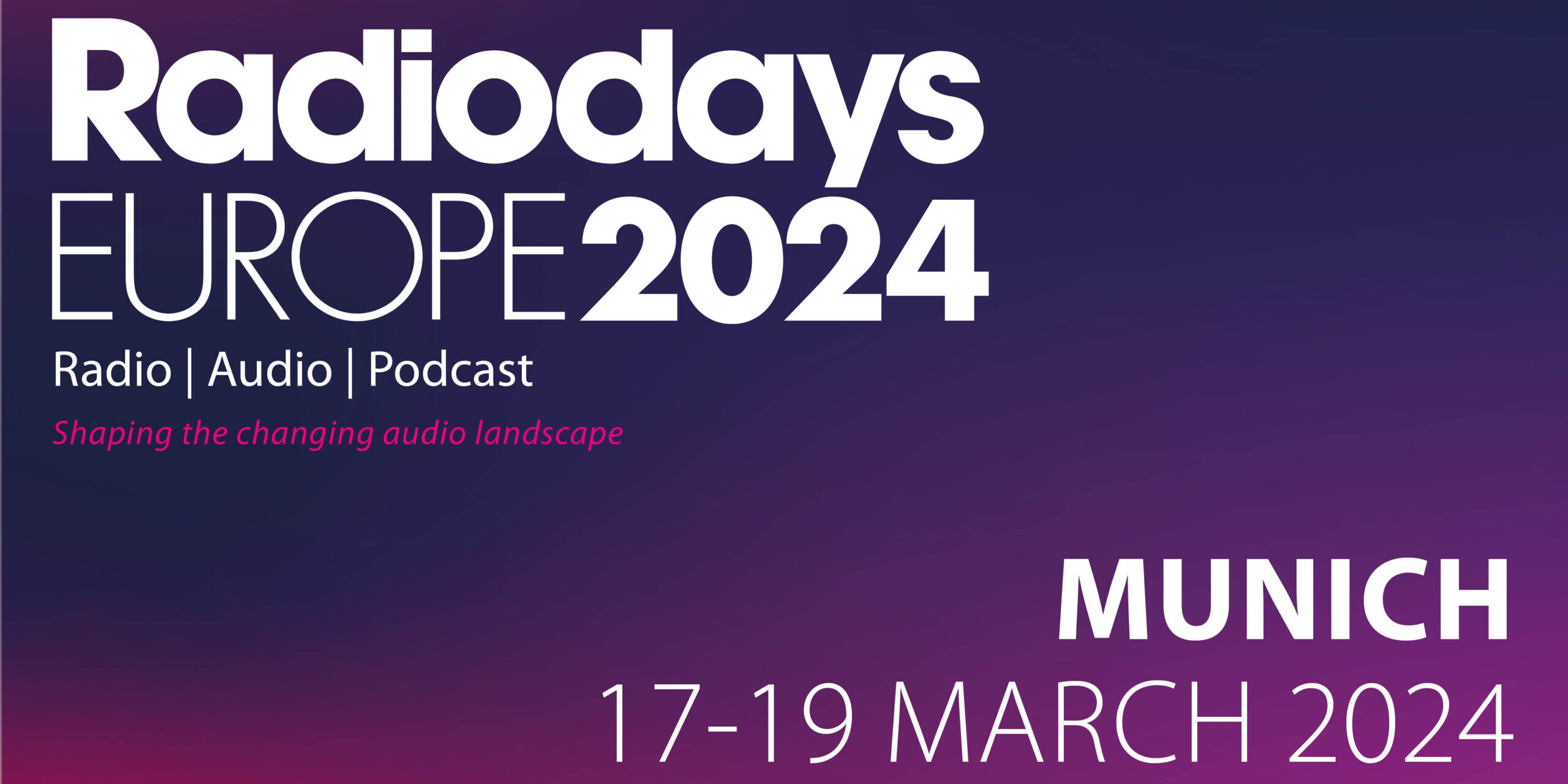Upcoming deadlines for grants, workshops and other opportunities for media workers
Scroll to discover opportunities for media workers, practitioners, researchers and journalists. All opportunities are in chronological order and separated into PMA-specific, Featured and Month-by-Month sections. Good luck!
Our Grants & Opportunities
Exclusive for staff at PMA Member organisations
The Global Grants are PMA’s flagship grant, offering staff at our member organisations up to £1500 to travel to another member, for work/research purposes.
*APPLICATIONS CURRENTLY CLOSED*
PSM: An Introduction are one–hour virtual seminars for new staff or apprentices at our member organisations, to educate them about public media worldwide.
Come to us with a specific idea for training or educating on a particular subject, and we will facilitate a one-hour virtual PSM Masterclass seminar with an expert.
Latest Projects & Workshops News
Register, watch and take part
Meet the 2024 Grantees
9th April 2024
Discover the stories of our 2024 cohort of nine Global Grantees as they share their reactions to being selected.
PSM Unpacked | Prominence
19th March 2024
MEMBERS EXCLUSIVE: In this online roundtable event, we will examine how PSM can restore their prominence in the current media landscape.
New PMA project: Building the Caribbean’s next generation of media literate citizens
9th January 2024
PMA's new media and information literacy project in the Caribbean aims to empower schoolchildren, educators, and journalists.
World Radio Day 2024
18th December 2023
Find out how you can get involved in World Radio Day 2024, under the theme "Radio: A century of informing, educating and entertaining.
Radiodays Europe 2024
12th December 2023
Register now for Radiodays Europe 2024 in Munich on 17-19 March. PMA members are entitled to a special discount.
PSM Unpacked | Moving to a digital future
8th December 2023
Our global membership recently joined our PSM Unpacked roundtable to discuss the opportunities and challenges of a digital future.
Events
Browse upcoming public media events and dates of interest
Featured opportunity
PMA has compiled a collection of resources on reporting in Ukraine, including information on financial assistance, which can be found by clicking the button below.
Month by month
Upcoming deadlines, workshops and opportunities
Freedom of Expression, Artificial Intelligence, and Elections online course
Deadline: WHOLE MONTH OF APRIL 2024
The Knight Center is hosting a massive open online course (MOOC) exploring the ever-evolving world of technology and democracy, and the impact of Artificial Intelligence on freedom of expression in elections. The 4 week course is being run for the month of April 2024 and is being offered simultaneously in Arabic, English, French, Portuguese, and Spanish.
“Diversifying Voices in Journalism” Media Grants
Deadline: 21 APRIL 2024
Through this “Diversifying voices in journalism” call in particular, the NGO Kosovo 2.0 wish to provide small-scale funding and training to media outlets and related organizations to help them realize their own innovative, high-quality media projects. This is to make sure that funding and skills can reach a diverse audience of media outlets and media-producing organizations that find it hard to directly access EU funding, or that still need to grow their journalistic skills or organizational capacity.
The overall objective is to support quality, public interest journalism, and the understanding and trust of journalism professionals, the media and the public towards independent journalism and its irreplaceable democratic function.
[Text sourced from the Global Forum for Media Development]
Kozik Environmental Justice Reporting Grant
Deadline: 24 APRIL 2024
The National Press Foundation and the National Press Club Journalism Institute jointly award the Kozik Environmental Justice Reporting Grant to U.S.-based journalists who plan to cover environmental justice
[Text retrieved from the Global Forum for Media Development]
EUROPEAN CROSS-BORDER GRANTS
Deadline: 25 APRIL 2024
This grant and mentoring programme aims to address the shortage of independent journalism by providing grants to investigative journalism projects in Europe and encouraging cross-border collaboration.
This awarded European Cross-Border Grant programme (running since 2009) supports cross-border teams of professional journalists and/or news outlets who have good ideas for cross-border investigations and for research on European topics. The stories must be relevant to European target groups.
These are projects that have great news value and depth, and at the same time are original, innovative and time-consuming, and would not be realised without financial support. Projects can include cross-border research, networking between colleagues, and established and innovative investigative methods.
Journalismfund Europe supports costs related to journalistic research for all media. This can include travel, translation, access to pay-databases or simply time to research. We do not support fixed costs such as office costs, investments such as cameras or computers or production costs.
Next to a grant, teams can also apply for a mentor to provide assistance with either the focus of the investigation or the need for competences in a specific skill.
[text sourced from Journalism Fund]
LOCAL CROSS-BORDER JOURNALISM GRANTS
Deadline 25 APRIL 2024
This grant programme supports local cross-border investigative teams of professional journalists and/or news outlets to bring the locals to the European level as well as to local citizens all over Europe.
Compelling stories can be found everywhere, even at the local level. Unlike other parts of the world, local journalists in some European countries such as Belgium and the Netherlands do not engage in in-depth research or investigative journalism. There are many reasons why the lack of interest among these local journalists to pursue comprehensive projects exist, for example, a lack of funding. This grant programme aims to address the shortage of local journalists and award grants to local investigative and in-depth journalistic projects. The key aspect of this programme is the cross-border collaboration, which will allow interested local journalists and/or media outlets to explore possible solutions using expansive resources. This project also aims to spur more critical thinking about society’s pressing problems, increase the level of debate, and foster civic engagement. The grant can also offer support to preliminary work in the development of new investigative and in-depth projects.
[text sourced from Journalism Fund]
Support to the Independent Media Sector in Serbia
Deadline: 26 APRIL 2024
The European Commission (EC) has announced a call for proposals to support media organisations and media associations in their contribution to the implementation and monitoring of the Media Strategy of Serbia, aiming at strengthening freedom of expression and ensuring media quality and plurality.
Objective:
The specific objective of this call for proposals is to support innovative activities of media organisations and associations in Serbia to ensure the implementation of the National Media Strategy and address the needs of the media sector, as well as to improve access to evidence based and quality content and hence fight against disinformation and fake news.
[Text retrieved from the Global Forum for Media Development]
Investigations into Disinformation Dynamics 2024
Deadline: 29 APRIL 2024
The European Media and Information Fund (EMIF) is accepting proposals for the Investigations into Disinformation Dynamics to address the existing knowledge gaps on the scale and scope of disinformation in Europe and foster a better understanding of the phenomenon and its impact on European audiences.
The Investigations into Disinformation Dynamics call establishes specific provisions regulating the process of applying for funding for the production of a range of multidisciplinary focus reports, covering both country specific and thematic analyses that can provide new insights into concrete cases of disinformation, the specific mechanics that enable its dissemination online, its effects on public opinion, and the impact of past and ongoing initiatives to counter disinformation.
[Text retrieved from the Global Forum for Media Development]
German-Eastern European Journalism Scholarship
Deadline: 30 APRIL 2024
The International Journalists’ Programme (IJP) are announcing their German-Eastern European Journalism Scholarship program for Eastern Europe for the twenty-third time.
With the Marion Gräfin Dönhoff journalism scholarship, five German journalists and bloggers are given the opportunity to work as guest editors in an Eastern European or Baltic editorial team for two months. Because of the war, German scholarship holders will be accommodated in 2024 primarily in the three Caucasian republics and in Moldova. The safety of their scholarship holders has top priority. In addition, German journalists who work on joint projects with Eastern European colleagues can also apply.
[Text retrieved from the Global Forum for Media Development]
Earth Journalism Network offers biodiversity story grants [Worldwide]
Deadline: 5 MAY 2024
Journalists interested in investigative or enterprise reporting on biodiversity or conservation topics can apply for this reporting grant.
The Earth Journalism Network (EJN), with support from Arcadia, offers Biodiversity Story Grants as part of its Biodiversity Media Initiative to support reporting that highlights untold threats to global biodiversity or explore new conservation-based solutions.
The program will offer grants up to US$2,000.
This year’s story themes include: underreported stories of trafficking of endangered flora and fauna; new or little-known threats to species diversity; new methods to track environmental crimes; and more.
Stories can be produced in any language. Applicants who intend to write stories in their local language must include an English translation.
[Text retrieved from International Journalists’ Network]
Citizen facing European TV and Video News Portal
Deadline: 15 MAY 2024
The call for proposals seeks relevant ideas for AI-based services that leverage the richness of data in the media sector to revolutionise how content is created and consumed, allowing to create new revenue streams for the sector. Support for the circulation of European content and integration of AI technologies that revolutionise content creation, organisation, and presentation within the European media landscape. This initiative aims at leveraging AI to present personalised on-demand content based on existing content, including in the area of news, documentaries, fiction and sports
[Text retrieved from the EU Commission]
Media Development Investment Fund Western Balkans Fund
Deadline: 15 MAY 2024
The Media Development Investment Fund (MDIF) have launched the Western Balkans Fund – a strategic initiative to foster growth and resilience in independent media in Albania, Bosnia and Herzegovina, Kosovo, Montenegro, North Macedonia and Serbia.
The Western Balkans Fund focuses investments on innovative startups, growth media undergoing digital transformation and protecting independent media from capture. The Fund seeks to bridge the financing gap that often hinders growth, and supports the development of robust, financially and editorially independent media companies that are able to support the advancement of their societies.
The Fund catalyses capital, mobilising financing to empower independent media enterprises in the region through no-strings-attached financing that drives growth and protects independence.
[Text retrieved from the Global Forum for Media Development]
Professional Development Grants for Environmental Journalism
Deadline: 23 MAY 2024
This grant facility supports enabling activities and supporting services for environmental investigative journalism as a whole. It seeks to promote collective development and support services for environmental investigative journalism, by providing funding to project ideas from organisations and institutions for training and professional development programmes, i.e. skills-focused professional training or fellowship programmes targeted at enabling investigative journalists to upskill with regards to reporting on environment related issues.
[Text retrieved from the JournalismFund Grants]
Pan-European Audiovisual Reporting Program
Deadline: 24 MAY 2024
The European Commission (EC) has announced a call for proposals to enhance the quantity, quality and impact of independent audiovisual reporting on EU affairs by pan-European media outlets in as many languages and EU member states as possible.
Applicants are expected to produce and disseminate audiovisual reporting content using both traditional and new media formats and distribution channels. They must adhere to European editorial standards, implement a shared pan-European branding and outreach strategy, and encourage exchanges of opinions and debates on key topics affecting European citizens.
The call for proposals is split into 2 different topics:
- Topic 1: Production and broadcasting of programmes and reports on EU affairs, including activities and policies of the EU institutions
- Topic 2: News services in languages with limited coverage of EU affairs and/or where the diversity of EU news content can improve
[Text retrieved from the Global Forum for Media Development]
Collaboration Lab for Bangladeshi media & civil society
Deadline: 25 MAY 2024
The Free Press Unlimited, in collaboration with ARTICLE 19, invites Bangladeshi civil society organisations (CSOs) and media to form alliances to together apply for this second round of the Collaboration Lab.
The Collaboration Lab is a small grants project for alliances of Bangladeshi media and civil society organisations (CSOs). It aims to promote collaboration on issues that are important and relevant to Bangladeshi citizens, stimulate the development of innovative solutions and facilitate knowledge exchange and mutual learning.
The Collaboration Lab – as part of the project “Joining Forces: CSOs and Media for Accountability in Bangladesh” – is administered by Free Press Unlimited and ARTICLE19 Bangladesh and South Asia, and receives funding from the European Union.
[Text retrieved from the Global Forum for Media Development]
FEATURED OPPORTUNITY
Free sustainability training for the TV/Film Industry
Media sustainability solutions organisation, Albert, offers a range of specific online and free training on an ongoing basis for those working in the TV and film industry to help make their productions in a more sustainable way. Sessions include sustainable production training; editorial training; sustainable sports TV and news production training. Many of the sessions will cover environmental basics, the industry’s impact, and production case studies.
How to become a forensic pro (French)
Take the open-access training designed by AFP for all journalists and journalism students, with support from the Google News Initiative.
[Text sourced from AFP]
Judith Neilson Institute’s Grants
JNI’s grants provide journalists and media organisations with the resources they need to produce quality journalism.
Grant proposals should be clear and concise with a plan of how you will reach an audience. Please note that we will always receive more good ideas than we can support. We only respond to submissions we are interested in hearing more about. For freelancers and individuals, we recommend you apply with the support of a media platform.
[Text sourced from The Judith Nielson Institute]
The ERC Collaborative Reporting Grants
The Environmental Reporting Collective is proud to announce we’re accepting applications for Collaborative Investigation Grants open to media outlets, journalists, and freelancers.
These grants ($1000 to $3000 USD) are specifically aimed at promoting collaboration, and allowing journalists from different countries to work together to fill in gaps in each others’ reporting, especially when tracing environmental crimes across borders.
Funds can be used creatively, and there is no travel requirement.
Applications are accepted anytime, with decisions made quarterly. Applications will be considered within 3 months of their submission from when applications are opened, to when they are closed.
[Text sourced from ERC]
Digital Journalism Course from Reuters and Facebook Journalism Project
Reuters, in partnership with the Facebook Journalism Project, has launched a course on digital journalism. The free online course offers training in digital newsgathering, verification and publishing skills, along with access to wellness and resilience resources.
Free online course on vaccine reporting
Vaccines have become a household conversation. But often the talk is inaccurate and full of fear. Quality vaccine journalism ‘talks’ to people. It answers their questions and addresses their doubts. Let’s Talk Vaccines takes you on a journey of discovery from evolving vaccine science to how to hold governments to account to ensure all people get access to a COVID-19 vaccine, and on to strategies to address vaccine misinformation.
[Text sourced from Internews]
Beyond survival? A new Human Resources research project for PMA members
Our new project aims to develop people management strategies to ensure the development and growth of PSMs in the fragmented digital media landscape.
In an exciting new research project, the Public Media Alliance (PMA) has partnered with Peter Block from the University of Westminster’s Communication and Media Research Institute (CAMRI), to launch a project that will review the processes by which participating PSM’s manage the employer-employee relationship during the employment life-cycle.
The purpose is to highlight issues for the sector at large, identify common themes of staff development needs, and offer some practical recommendations for good practice to the PMA community.
BFI Young Audiences Content Fund
The BFI is administering a three-year pilot fund of £57 million, derived from the Department of Digital, Culture, Media and Sport (DCMS), to help expand the children’s content industry in the UK.
The Fund seeks to support public service broadcasting content aimed at audiences under 18 with the creation and development of new programmes which include PSB values by reflecting UK identity and children’s lives (both regionally and nationally), educating and informing audiences as well as representing more diversity and alternative voices.
‘Production and development awards will contribute to the funding of programmes, shown on television and online platforms, that have public service broadcasting values in live-action and animation and across all genres.’
[Text from BFI]
Collaborative Operations and Services Grant Program [US based]
Organised by the Corporation for Public Broadcasting (CPB), “The Collaborative Operations and Services (“COS”) grant program is intended to support multistation initiatives to fully develop and implement collaborations, strategic alliances and other forms of partnerships that will increase stations’ abilities and capacities to achieve more together than each can accomplish alone.
The COS will provide smaller grants to assist stations with facilitation, analysis, and research (“FAR”) required for establishing parameters for collaboration efforts (see details below), as well as larger grants for the implementation of serious collaborative efforts.”
[Text sourced from CPB]
Course on diversity in the news and newsrooms
Ongoing
This MOOC, from the Knight Center in partnership with the Google News Initiative, provides four weekly modules from 11 January to 7 February, 2021. This instructor-led course aims to explore how diversity can transform journalism by democratising the profession from within. Over the course’s duration, participants will learn about strategies to diversify newsrooms and retain talent and tools to work on stereotypes and racial biases which may colour news coverage. You can still access this course as a self-enrolled student.
Coverage of the COVID-19 Vaccine: What Journalists Need to Know
The Knight Center for Journalism in the Americas has made their free, Massive Open Online Course (MOOC) available indefinitely for journalists who are interested in improving their coverage on COVID-19 and vaccines. The self-directed, self-paced course is available in English, French, Portuguese and Spanish.
Data Journalism Grant
The Pulitzer Center on Crisis Reporting, a non-profit organization that supports independent global journalism, is seeking applications for innovative data-driven journalism projects that spotlight under reported issues. This opportunity is open to all newsrooms and independent journalists in the United States and abroad.
[Text sourced from Pulitzer Center]
Disinformation and fact-checking in times of COVID-19 in Latin America and the Caribbean (Spanish)
Online
“Aimed at journalists and communicators in general, this free training is open to anyone interested in the subject, especially journalism teachers and students. In four weeks, instructor Cristina Tardáguila will explain the origins of fact-checking in journalism and teach the tools necessary to discredit fake news in these times of pandemic.” You can still access this course as a self-enrolled student.
[Text sourced from Knight Center]
The Knight Center offers many other journalism courses. Explore them here.
First Jobs Fund
The Journalists’ Charity recently launched a fund for new journalists starting out in the field. “The fund will offer support with essential costs such as accommodation, moving home, transport and essential work-related equipment.”
Fund for Indigenous Journalists: REPORTING ON MISSING & MURDERED INDIGENOUS WOMEN, GIRLS, TWO-SPIRIT, TRANSGENDER PEOPLE
The Fund for Indigenous Journalists: Reporting on Missing & Murdered Women, Girls, Two-Spirit, Transgender People (MMIWG2T) directly supports Indigenous journalists’ reporting on violence that targets members of Indigenous nations, both on sovereign ground and in urban settings in the U.S. The dominant media narrative around Indigenous issues, including of Missing & Murdered Indigenous People (MMIP), is often criticized by Indigenous journalists as perpetuating stereotypes and lacking critical nuance – victimizing Indigenous people and ignoring their survivorship. Meanwhile, Indigenous people make up less than one percent of working journalists in the U.S. and have little access to major media outlets to tell their own stories to national audiences.
[Text retrieved from the International Women’s Media Foundation]
Fund for Women Journalists
Promoting the work and advancing the role of women and nonbinary journalists across the globe is critical to advancing transparency and diversity in the news media.
The Howard G. Buffett Fund for Women Journalists (FWJ), the first funding initiative of its kind, supports journalists and journalism projects including, but not limited to, professional development opportunities, investigative reporting and media development initiatives led by women and nonbinary people. Established with a $4 million gift from the Howard G. Buffett Foundation, FWJ has supported more than 330 journalists from 47 countries since its inception in 2015.
[Text retrieved from the International Women’s Media Foundation]
Funding available for Black journalists [US based]
The International Women’s Media Foundation (IWMF) and Black Journalists Therapy Relief Fund are providing two emergency funding opportunities. The Black Journalists Therapy Relief Fund is designed to provide financial assistance for Black journalists who are unable to pay for mental health support. The IWMF’s United States Journalism Emergency Fund may address needs related to work, such as medical aid, destroyed or stolen equipment and protective gear; or long-term needs such as trauma, mental health services and referrals to legal support. Applicants must be working journalists and must provide proof of their financial need.
[Text sourced from IJNet]
ICFJ Knight Fellowships
The International Center for Journalists (ICFJ) is looking for outstanding journalists with a background in digital journalism, training or coaching, to work “in key areas of innovation such as newsroom transformation, entrepreneurship and business models, technology creation and adoption, diverse voices in news, investigative reporting, digital security and specialized reporting on health, gender and development.”
“Fellowships are typically a minimum of one year, and may be extended by ICFJ depending on funding and the opportunity for greater impact. Fellowship projects must produce measurable results.”
Proposals for fellowships are accepted on a rolling basis throughout the year but there are other opportunities to apply for that can be found on the website.
[Text from ICFJ]
“The Assistance Desk of Reporters Without Borders (RSF) provides financial and administrative assistance to professional journalists and citizen-journalists who have been the victims of reprisals because of their reporting.” Individuals, NGOs and media outlets can apply for support.
[Text sourced from RSF]
Ongoing
The Chilean digital magazine Puroperiodismo, is inviting journalists, developers, designers and innovators residing in Latin America and the Caribbean to participate in this project.
Media professionals who are currently exploring new technologies, approaches to reporting, developing an app or similar are encourage to talk about it in the magazine.
Entries are on an ongoing basis
International Reporting Grants
The Pulitzer Center’s International Reporting grants support reportage on topics of global importance. Grants are open to reporters, photographers, radio/audio journalists, television/video journalists, and documentary filmmakers. COVID-19 projects are currently being prioritised as well as other projects that can be completed in the near term without much travelling.
IWMF – Howard G. Buffett Fund for Women Journalists
The Howard G. Buffet Fund for Women Journalists, established by the International Women’s Media Foundation, provides funding to promote and advance the work of woman-identifying journalists in the news media globally. The fund accepts applications on a rolling basis. Teams of journalists may apply but the submission must be from a woman journalist and her team must include at least 50% women.
NPR Story Lab
“The NPR Story Lab is looking for great ideas. In fact, we’re an idea hub – generating new segments for our news programs, creating radio shows, and launching new podcasts. We want to collaborate with member stations and independent producers. We want to work with new talent that brings a fresh perspective to NPR. We want to keep innovating and leading in the podcast and radio world. The NPR Story Lab is a true creative studio at the heart of NPR, one that fosters experimentation and continues to evolve the sound of public radio. Tell us your ideas, and let’s make stuff!”
Are you interested in submitting your story or pitching a programme idea to America’s foremost public radio station? NPR are accepting applications on a rolling basis. Get involved via the link below.
OPEN Media Hub offers free online courses [Eastern Europe, MENA]
Journalists, media managers and other media professionals can take self-directed courses in English, French, Arabic and Russian. The OPEN Media Hub provides e-learning courses as a part of the support for media professionals in the countries of the European Neighborhood, including Central Asia, the Middle East and North Africa. Topics range from media management and content production to media coverage of migration and COVID-19. All courses are free of charge and permanently open. Certificates are available to users who successfully complete them.
[Text sourced from IJNet]
Open Society Initiative for Eastern Africa
Deadline: Ongoing
“OSIEA plays an active role in encouraging open, informed dialogue on issues of importance in Eastern Africa. Through a combination of grant making, advocacy and convening power, OSIEA is able to support and amplify the voices of pro-democracy organizations and individuals in the region and to strengthen their capacity to hold their governments accountable. This includes efforts to defend and support rights activists and pro-democracy advocates who come under attack for their work. ”
The eligibility criteria includes supporting projects based around media and access to information. The OSIEA is available to both organisations and individuals.
Interested grant seekers should consult the OSIEA website for more information on eligibility and application guidelines.
Pitching Investigative Documentaries – GIJN
The Global Investigative Journalism Network (IGJN) launched a collaborative network during a GIJN webinar. This is a platform where pitches for investigative documentaries and long-form productions about Covid-19 can be submitted and passed onto several public broadcaster production teams including BBC Africa, BBC Arabic, CBC Canada, PBS Frontline and RTS in Switzerland as well as Premières Lignes, an independent French TV production and news agency that has worked with France Télévisions.
Submit your pitch here:
Press Freedom Accountability Project grant funding [US based]
Following recent attacks on and intimidation of journalists in the United States, the Committee to Protect Journalists (CPJ) is partnering with the News Leaders Association (NLA) to provide journalists with grants between $2,000 and $5,000 to “support reporting on press freedom violations and accountability.”
Rainforest Journalism Fund
Deadlines: Rolling
The Pulitzer Center has a number of grants available under its Rainforest Journalism Fund — the International Rainforest Journalism Fund; the Amazon Rainforest Journalism Fund; the Congo Basin Rainforest Journalism Fund; and the Southeast Asia Rainforest Journalism Fund. The fund represents a major investment in international environmental and climate reporting. Through the Pulitzer Center, the Rainforest Journalism Fund plans to support nearly 200 original reporting projects over the five years’ existence of the Fund, along with annual regional conferences designed to raise the level of reporting on global tropical rainforest issues such as deforestation and climate change and produce stories that make an impact.
[Text sourced from Pulitzer Center]
Rory Peck Trust Assistance Grants for Freelance Journalists
The Rory Peck Trust provides assistance to freelance journalists and their families around the world. Applicants must be able to receive a grant from a British registered charity.
Rory Peck Trust Training Fund for Freelance Journalists
The Rory Peck Training Fund provides training to freelance journalists to equip them with the essential skills and knowledge needed to work in difficult and potentially dangerous situations. The training fund is available to freelancers who have worked in newsgathering and/or current affairs for a minimum of 18 months. Priority is given to those who work in hostile environments and to those with confirmed assignments.
The Pulitzer Center on Crisis Reporting Grants
Deadline: Ongoing
The Pulitzer Center has published an advisory note to all new applicants in light of Covid-19. Please read here.
The Pulitzer Center on Crisis Reporting offers several ongoing grants “to support in-depth, high-impact reporting on topics of global importance, including investigations of systemic problems that are often overlooked by mainstream U.S. media.” These include the International Reporting Grant, Rainforest Journalism Fund and Bringing Stories Home: Local Reporting Grants. Freelance and staff journalists from news outlets can apply.
Find out how to apply and the other grants available via the link below:
The Self-Investigation: A free online stress management program for journalists
In partnership with the ICFJ, Open News and the Online News Association, “The self-investigation is a free online program designed to support journalists with knowledge and evidence-based practices they can use to relate to stress and digital overload in a healthier way. This is an opportunity to get access to ongoing support from professionals so you can feel more balanced and tap into your innate resilience. The English language edition will take place over four weeks in July.”
[Text sourced from The Self-Investigation]
Training: Online Courses for Media Professionals
Deadline: Ongoing
A selection of online tutorials created by the European Journalism Centre and supported by the Google News Initiative.
The diverse new set of courses include ‘Where to hire a data journalist’; ‘Python for journalists’ as well as “Google Search for Journalists”; “Verification: the basics” and “Managing Data Journalism Projects” among many others.
All courses are free and vary in difficulty. Courses can be completed at the participant’s preferred pace.
Transatlantic Media Fellowship
Ongoing
European media representatives are invited to apply for this fellowship, which will give them the chance to travel across the United States and expand on their knowledge of America and its citizens.
Organized by the Transatlantic Media Network (TMN), the goal of this fellowship is to strengthen the existing transatlantic relationship and improving mutual understanding among journalists and media professionals of both sides of the Atlantic.
The visiting journalists will follow an individual itinerary, created on their skills and interests, which will take them mostly around Washington DC and to visit TMN’s partner institutions, such as universities and journalism schools.
The fellowships may have a different duration but they will all be up to three months.
Poynter hosts online course on trust building
Journalists who want to learn strategies to earn their communities’ trust can take this course.
Poynter offers the self-directed, online course “How any journalist can earn Trust.”
The training is divided into 10 modules: perceptions of news; tell your audience who you are, explain your ethics and values; transparency: why it’s important and how to do it day-to-day; building trust into beats; engaging with your audience; separate opinion content from news; connecting revenue to trust; build trust by helping people navigate the news; and next steps.
[Text sourced from IJNet]
Last updated on 12 APRIL 2024
If you have any suggestions for grants applications and other opportunities please email PMA at editor@publicmediaalliance.org.








